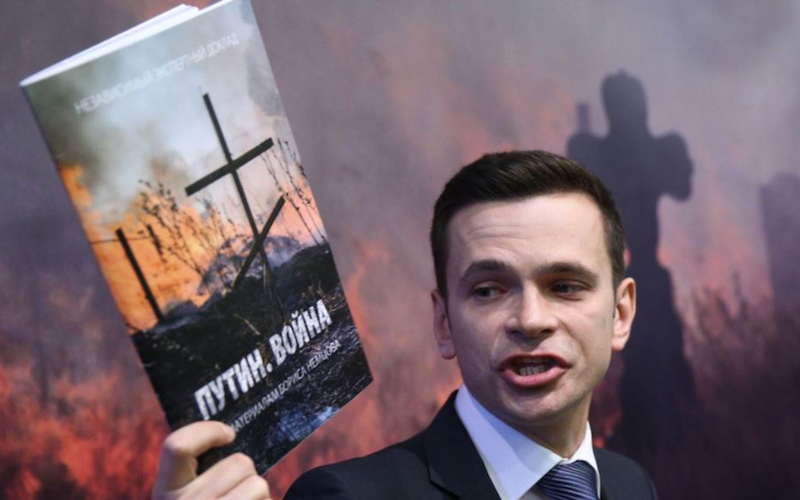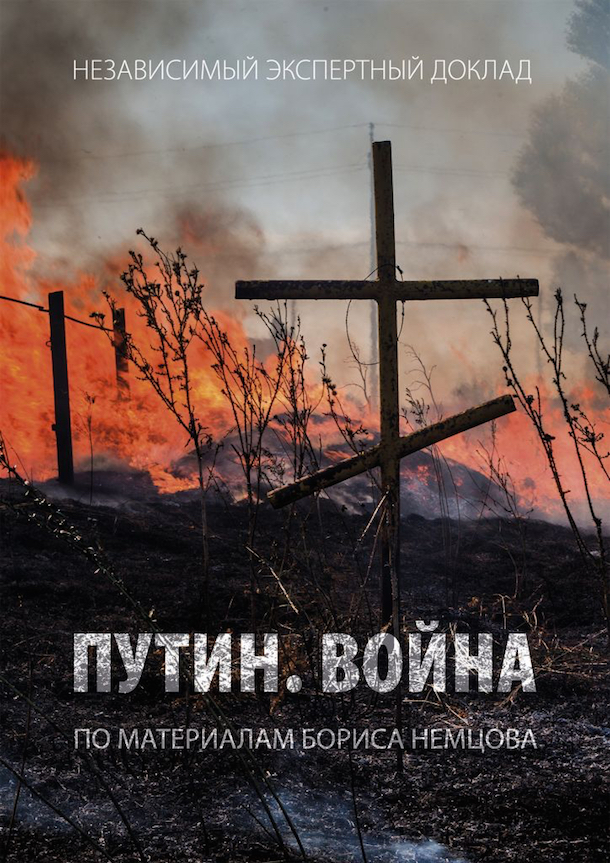
First thoughts on Nemtsov’s, ‘Putin. War.,’ Report on Russian Operations in Ukraine
Putin. War., the report on the Ukrainian adventure that Boris Nemtsov was working on when he was murdered, has been released, completed by Ilya Yashin and other allies and cohorts. It’s an interesting document, even if it essentially fleshes out what we already knew rather than saying anything truly novel (the section on the MH17 shoot-down, adding to the chorus of voices blaming the rebels, largely draws on existing, available studies, for example). That’s not in any way to undermine the genuine bravery of those people involved in the project, including not just Yashin but a range of opposition-minded figures from Oleg Kashin to Ekaterina Vinokurova. But I think it does put paid to the suggestion that Nemtsov was assassinated to prevent the report from coming out, especially as now it will probably get more coverage than it would otherwise.
Anyway, here are a few first thoughts on the report:
I’m not convinced contingency plans necessarily mean intent. Of course the Crimean operation had been carefully planned, and that takes time. The report implicitly places a desire to annex Crimea in the context of slipping political support for the regime, even hinting at summer 2013, let alone before Yanukovych’s fall. This is one area which failed to convince me.
Military establishments have plans for all kinds of contingencies, ranging from the probable to the plausible; there is a Russian plan for war with China, for example, but not for a moment do I think anyone in the Kremlin is lunatic enough to want such a nightmare.
I understand there was a long-standing plan in the vaults of the General Staff’s Main Operations Directorate, and that as soon as the friendly regime in Kiev looked in trouble, it was taken out and updated. But I also understand that the final stage was something of a rush job. This was an opportunist move, not part of some long-term strategy.
Russian troops were involved from the get-go. Of course it has been clear that this has been a Russian-engineered operation from the first. Moscow says otherwise, but then again Moscow said the “polite people” weren’t Russian troops…until Putin chose to boast that they were. (All states lie; but today’s Kremlin seems to do so with particular poker-faced enthusiasm.) The report usefully explores the level of Russian forces in-country, with some good analysis of the “vacationer” mercenary/volunteer presence, as well, worth reading alongside other reports.

Russian casualties: tragic but supportable politically, yet potentially a burden militarily. The report suggests at least 220 Russian soldiers have been killed in Ukraine (and implies rather more), with some impressive detective work to determine who, where, and from which units (essentially paratrooper divisions). Tragic, to be sure…but as many Russians die on the country’s roads every two and a half days (a horrifying stat in its own right). While of course political impact isn’t simply a matter of numbers (if it were, Moscow would be doing a lot more about those roads), combine relatively few casualties with media control, and I don’t think the sheer number of “load 200” deaths will in itself become too great a problem.
That said, most of the forces there are paratroopers or Spetsnaz, the cream of the Russian military. If the toll continues, never mind escalates, even if it is not a political issue, then it will begin to gnaw away at military effectiveness. Yes, real combat is an excellent way to identify and develop good leaders, battle harden your troops, test your weapons and tactics. But the negative effects of losing elite troops, added to exhaustion and possible demoralization (the Afghan War proved that no one likes fighting undeclared and unadmitted conflicts) can outweigh these.
The ruble costs: serious, escalating and having a real impact. For me, perhaps the most interesting section was the last one, on the economic costs of the “Donbass operation.” (Obviously Crimea is a whole other story.) Their estimates are obviously just that, and based on a fair amount of extrapolation and guesstimation, but this section was drafted by a serious economist, Sergei Aleksashenko, the former deputy chair of the Russian central bank, and deserves to be taken equally serious. The headline claim is that Moscow spent at least 53 billion rubles (say $1 billion) on the actual operation, with another Rs 80 billion ($1.5 billion) on support for refugees, etc.
Together, they represent only just under 1% of the total federal budget (Rs. 15 trillion), which might seem not so much. However, that’s roughly as much as the government will spend on its environmental protection and tourism programs for the whole year. Furthermore, the report explores the wider impact, not least how sanctions imposed because of the conflict have triggered inflation, and the cost of this to Russia and also to individual Russians. In many ways the economic implications of the war are having by far the most serious direct impact on Russia, and this report does valuable service in helping us understand and quantify it.
“Vladimir Putin is a TV star.” The section on propaganda and the war likewise may not say much that is new, but it says it very well, and rightly focuses on the crucial impact of TV in the modern propaganda campaign.
This article was originally posted in In Moscow’s Shadows.

